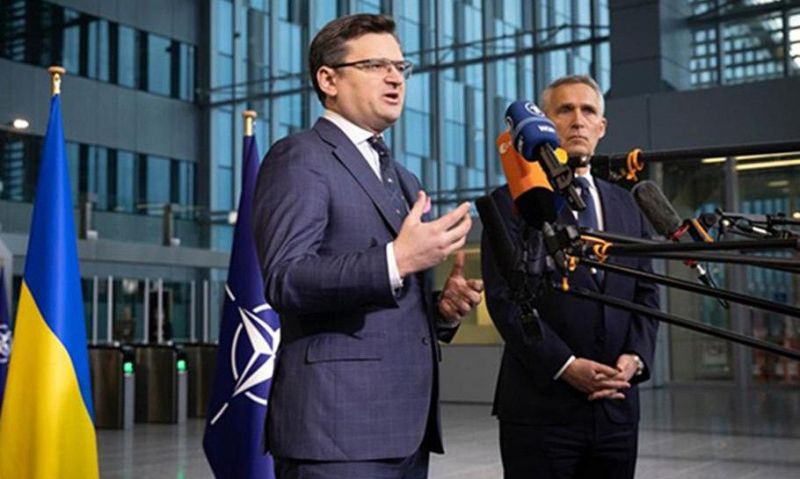
‘Weapons, weapons, weapons’ on the agenda for Ukraine at NATO emergency meeting
Ukrainian Foreign Minister Dmytro Kuleba arrived Thursday at NATO headquarters with three items on his agenda to consolidate his country’s defenses against Russia’s full-scale invasion.
“It is weapons, weapons, weapons,” Kuleba said in Brussels, where allies are gathered for emergency meetings.
U.S. Secretary of State Antony Blinken and his counterparts were expected to take up the issue of how to get more weaponry into Ukraine as the war, which began Feb. 24, enters a new phase.
“I think the deal Ukraine is offering is fair,” Kuleba said. “You give us weapons. We sacrifice our lives. And the war is contained in Ukraine.”
NATO Secretary-General Jens Stoltenberg has warned that Moscow’s recent withdrawal of forces from around the Ukrainian capital of Kyiv marks a shift in strategy rather than de-escalation.
Now, Russian forces are resupplying and regrouping in Belarus. After failing to capture Kyiv, Russia is expected to refocus on Ukraine’s east, with the aim of establishing a land bridge between the region known as the Donbas and occupied Crimea.
Kuleba said Ukrainian forces can resist, but only if they are better armed. Stoltenberg expressed confidence Thursday that allies are prepared to do more.
“I am certain that we will address the need for more air defense systems, anti-tank weapons, lighter but also heavier weapons, and many different types of support to Ukraine,” said Stoltenberg, flanked by Kuleba at NATO headquarters.
Allies also were set to discuss additional sanctions on Moscow in response to allegations that Russian forces have targeted civilians and committed war crimes in previously occupied areas.
Since the Russia-Ukraine war began, the U.S. has committed $1.7 billion worth of weaponry and other items to support Ukrainian forces.
Javelin anti-tank systems and Stinger missiles are among the arms the U.S. has supplied. Others pegged for delivery include Switchblade tactical drones and Puma drones for surveillance.
Numerous other allies have sent weapons as well. Still, Ukraine says some NATO members, Germany in particular, have been too cautious and too slow in delivering arms.
“While Berlin has time, Kyiv doesn’t,” Kuleba said.
He credited Germany for reversing its previous position of not providing lethal weaponry to his country in the wake of Russia’s invasion, but he said Berlin is still too restrictive on what it is willing to send.
“It is clear that Germany can do more given its reserves and capacity,” Kuleba said.
He called on allies to “put aside their hesitations” and added: “Because as weird as it may sound, today weapons serve the purpose of peace.”
